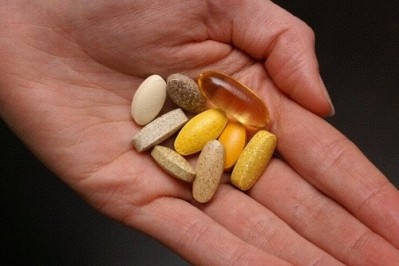News focus: Global nutraceuticals market
Eastern Europe: The fastest growing market
the past decade, as the market catches up with the rest of the
world, according to an industry veteran.
Peter Zambetti, global business development manager for dietary supplements at Capsugel, said that this is the fastest growing of all global markets, with every area in the region showing "pretty impressive growth".
Overall, sales in the region reached around $1.4bn in 2006, compared to just over $300m in 1997, said Zambetti, who is also in the International Alliance of Dietary/Food Supplement Association's (IADSA) global market affairs department.
Zambetti was addressing attendees at the recent Supply Side East trade show in Secaucus, New Jersey, where he presented an overview of the global nutraceuticals market.
Included in his definition of 'nutraceuticals' were vitamins, dietary supplements, botanicals, tonics and homeopathic remedies.
Eastern Europe grows…
The Eastern European market made up around 2.7 percent of global nutraceutical sales in 2006.
During that year - which was the latest with comprehensive sales figures - global sales were over $52bn.
Russia was the largest market within Eastern Europe, according to data that Zambetti pooled from Euromonitor, Datamonitor, Mintel and Nutrition Business Journal.
This market saw over $650m in sales during 2006.
Poland came in at second place, with sales of over $200m. Other countries that trailed behind included Ukraine, Hungary, the Czech Republic, Romania and Slovakia.
…As it catches up Typical of a market catching up with its more developed predecessors, the types of products most popular in Eastern Europe were "not new" , said Zambetti. Trends in supplements and supplement ingredients mirrored the big market moves in the West, and included minerals, fish oils, CoQ10 and glucosamine.
In terms of distribution, chemists and pharmacies still dominate, although, as supplements start to enter the mainstream, distribution in grocery stores has also increased - gaining some 50 percent share in three years.
One of the major reasons for the growth of the market in Eastern Europe is the fact that overall per capita expenditure has increased by 50 percent over the last four years, said Zambetti.
Russia
According to Zambetti, dietary supplement products overtook vitamins back in 2003.
As the major market in the region, the most popular single product in Russia is tonics - with sales of just over $50m. Other popular products - all with sales under the $50m barrier - included eye health and child specific products, calcium, probiotics, minerals, CoQ10, Enchinea and ginseng.
Russia also had an 'other' category that made up around $225m of the market.






